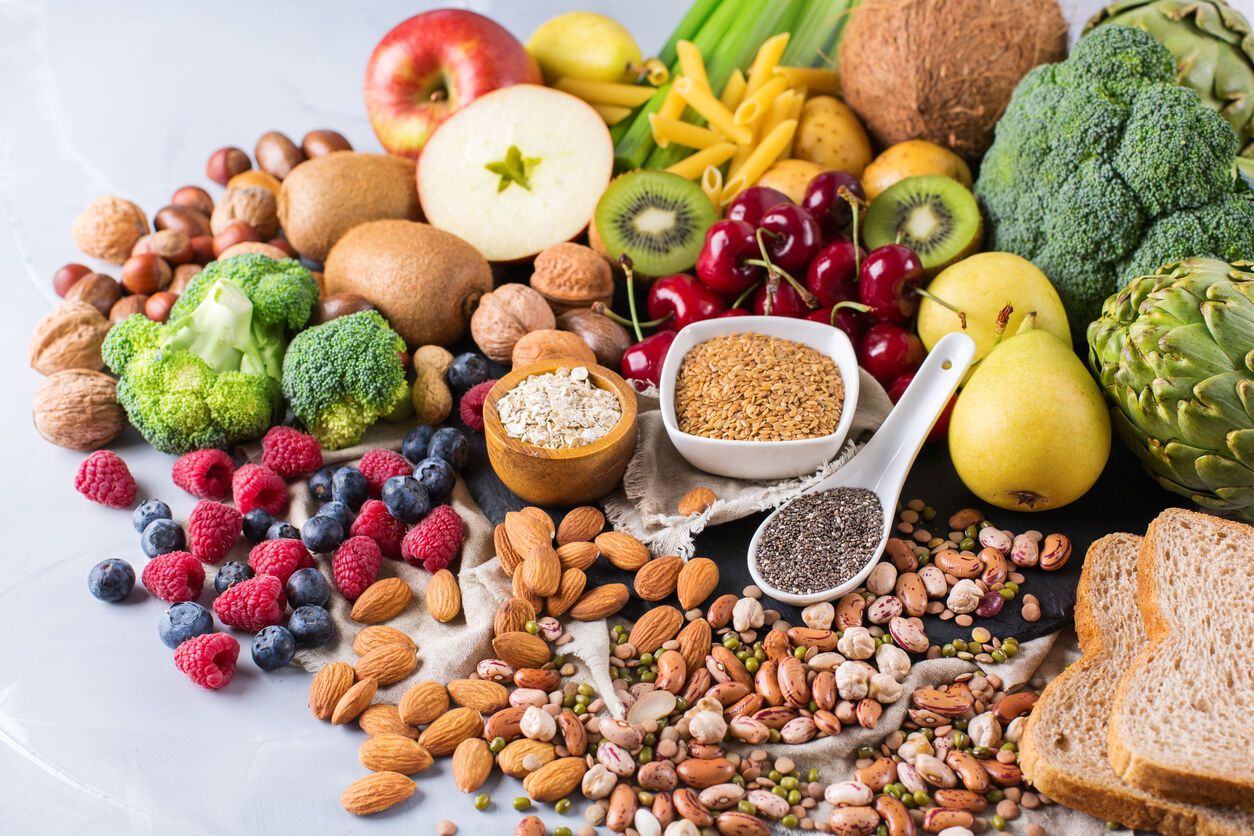LS Food
What are the benefits of fiber: the main advantages are named
Fiber is a type of dietary fiber that has a positive effect on digestion and significant health benefits.
OBOZREVATEL, with the assistance of verywellfit.com, offers to familiarize yourself with information about what fiber does in our bodies.
Stomach
In the stomach, fiber swells and makes you feel full. However, insoluble fiber is quickly excreted if it does not contain fat, protein, or soluble fiber, which slows down this process. Soluble fiber can retain water and slow down stomach emptying, especially when consuming large amounts of liquid and fat. This partially explains the fact that it reduces the glycemic index of food – the contents of the stomach gradually enter the small intestine, and from there – into the bloodstream.
Small intestine
In the small intestine, the situation is similar: the presence of insoluble fiber tends to accelerate the "transit time", while soluble fiber slows down this process.
Colon
It is commonly believed that the colon is the place where water is removed from everything left over from food digestion, and the rest moves towards excretion. But in fact, it has its own "whole world". We literally could not exist without the wonderful "friendly" bacteria in the digestive system, where "battles" are fought, nutrients are produced, and the immune system is strengthened.
Directly in the colon:
– Vitamins are created (especially vitamin K and some B vitamins)
– More minerals are absorbed into the bloodstream
– "Friendly" bacteria displace those that cause disease, such as salmonella
– "Friendly" bacteria reduce the level of certain toxins, such as ammonia
– Special short-chain fats (SCFAs) are produced, most of which are absorbed into the bloodstream, but some are used to feed colon cells
– The health of the colon cells depends largely on the bacteria it contains, and they, in turn, depend on the food we give them.
It is short-chain fatty acids that have recently attracted the most attention. There is evidence that they are important for maintaining the health of colon cells and preventing conditions such as ulcerative colitis, colon cancer, and diverticular disease. These fats can also help regulate cholesterol and insulin levels.
Types of fiber: soluble and insoluble
Soluble fiber is subject to fermentation (e.g., gums and pectins). It is found in foods such as berries, beans, flax seeds, plums, apples, and oats, as well as in some food supplements such as psyllium and guar gum.
Insoluble fiber is found in foods such as vegetables and cereal bran (e.g., wheat bran, nuts, and seeds). It is not available for extensive fermentation but is still important for the colon. This fiber speeds up the process of passing processed food through the intestines.
Different types of fiber provide a wide range of "bacterial food." This leads to the formation of short-chain fatty acids and other healthy products. Therefore, it is important that the diet contains a lot of fiber.
Other benefits
In addition to lowering the glycemic index of foods and promoting colon health, there is evidence that fiber can benefit in other ways. It is believed to be able to lower cholesterol and triglyceride levels, as well as prevent: duodenal ulcers, diabetes, heart disease, and cancer.




























